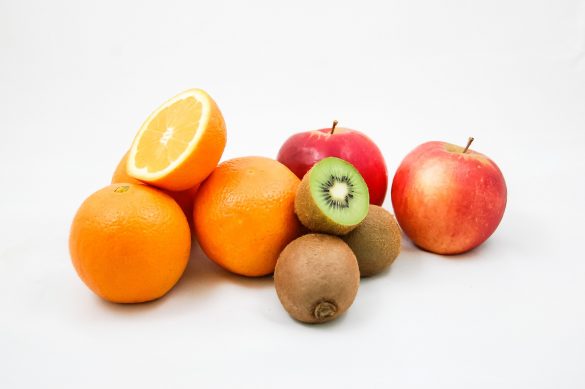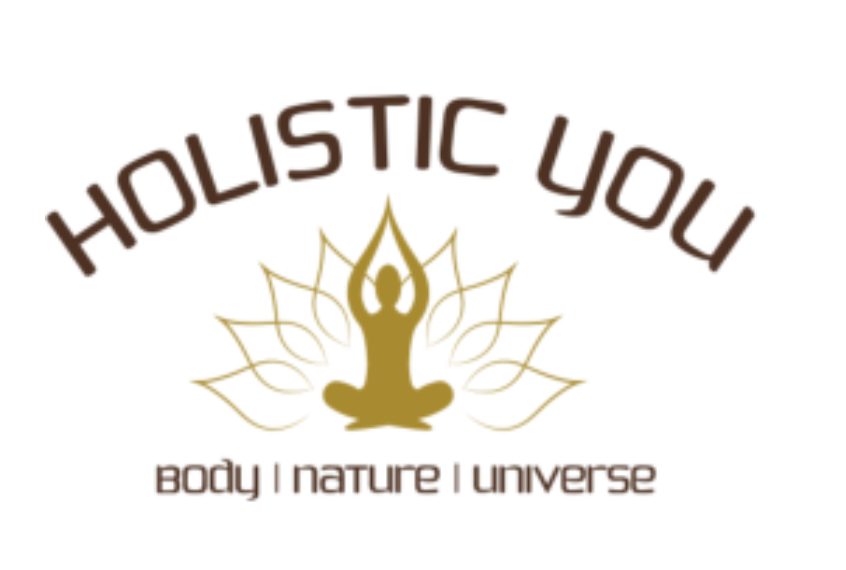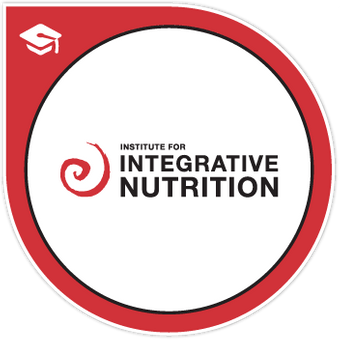“You are what you eat” – Have you heard this quote before? Ayurveda would adjust this statement to “You are what you digest”, as not only what we put into our mouth finally arrives in our body cells. The point is: Whatever you put into your mouth and digest will enter your bloodstream and literally become a part of yourself. Meaning, your physical body absorbs the tiniest parts of this food; it sends them into all of your cells where they build up mass and influence biochemical functions; it supports or harms DNA repair mechanisms, increases or decreases your immune function; it may open or dull your mind, etc. At this point I want to refer to our inseparable mind-body connection again: different kinds of foods affect your mental and emotional state in a different kind of way. But that will be a further topic in an upcoming article. 🙂
Before we dive deeply into the topic of a plant-based diet and its’ health effects on your “holistic Self”, I need to mention one important point: I’m not here to convince anyone to go completely plant-based, raw vegan or whatever. What I simply want to share with you is my knowledge and experience with the health benefits of plant foods. As I addressed by the approach of bio-individuality, I believe that everyone has different needs. However, every big nutritional institution recommends plant foods as the base, meaning 70-90 %, of our meals. So, let’s not argue about what kind of protein you take in for the last 10-20 % of your overall food intake. But let’s speak about this basic, dominant and important amount of our overall food intake, which is plants. And while doing so, I simply want to remind you of becoming or staying more conscious with your day-to-day choice of what you put into your mouth; what you eventually integrate with your holistic system, your precious temple.
“Your body is the biggest investment that you will ever make in your life.
Don’t abuse it.”
~ Plant foods: what’s inside? ~
Science shows us that the nutrients in our foods are what we absorb and thrive on:
- On the one hand, there are the macro-nutrients, such as carbs, proteins, and fats.
- On the other hand, we have the micro-nutrients, which are vitamins and minerals.
The nutrient density of whole plants is incredibly high, whereas its energy (“calorie”) density is comparably low. Meaning, we get loads of incredibly healthy substances without taking an excessive amount of calories in. Fruits are the primary source of vitamins, vegetables, nuts, seeds, legumes, and grains provide us with lots of minerals.
What’s more, plants contain two more health-promoting substance groups, which are fibers and phytochemicals.
- Fibers are the non- or limited digestible parts which occur only in whole plant foods. They have numerous beneficial effects on our physical body. For example, fibers help to maintain a healthy digestion with regular bowel movements; it stimulates the saliva production, which is already the first step of digestion; it balances blood cholesterol and sugar levels as it is the only way to excrete excessive cholesterol.
- Phytochemicals represent all the colors, smells, tastes from whole plants in their natural states. Although they are considered as non-nutritive, these tiny molecules have amazing impacts on our health as they have anti-inflammatory, anti-cancer, antioxidative, antibacterial, metabolic regulating effects and much more. Thus, eating plants is making a choice for your state of health every single day. It is an active act of preventing diseases.
“Let food be thy medicine and medicine be thy food.”
(Hippocrates)
Therefore, dissecting plants and taking the scientifically based findings into account, eating plant foods do not only give you energy and nutrients. It supports your digestive system, your metabolism and it hydrates you because of its’ high water content. But what’s the ultimate key: you are able to protect yourself from diseases as they are the only source for phytochemicals. A source that will boost your body’s ability to maintain repair mechanisms. You can really talk about food which has the power to heal yourself.
~ Nutrition and longevity ~
Having a look at epidemiological studies, we observe certain populations worldwide which are the overall masters when it comes to longevity. They still enjoy a tremendous amount of life quality in their eighties, nineties and even centuries. Have you heard of the blue zones before? These are the 5 regions on a global scale inhabited by population groups which have been studied very well by medical researchers, demographers, and anthropologists. People in those areas do live around 10 years longer than the average western person and they have 10 times more centenarians than any other place in the world. Disease and (early) mortality is not seen as “normal” as it is in our society, but they thrive on astonishing good health conditions within their very long lifetime. So, where do we find those people? Where are these blue zones?
- Okinawa (Japan)
- Ogliastra (Sardinia/Italy)
- Ikaria (Greece)
- Nicoya (Costa Rica)
- Loma Linda (California)
 So, what do they have in common? As you know: I never want to reduce anything to one single fact. Life quality is determined by a row of factors. But let’s start with their nutritional similarities because this factor definitely stands out with a great number of parallels.
So, what do they have in common? As you know: I never want to reduce anything to one single fact. Life quality is determined by a row of factors. But let’s start with their nutritional similarities because this factor definitely stands out with a great number of parallels.
They all eat a largely plant-based diet, based on vegetables, grains, nuts, legumes, and fruits. Okinawa’s population, for example, thrives on sweet potatoes as their primary starch source. Beans and lentils are very common among the centenarians, which is consumed daily. On average, 95 % of their diets consist of these plant sources. In addition, they might add very small amounts of fish or other animal products. Refined, processed foods do not play a role at all within their nutrition (Appel, 2008; Mishra, 2009). Plus, they do not overeat and/or fast regularly. For example, the Okinawa population stick to this wisdom, which says “Hara Hachi Bu”, translated as “Stop eating when you’re 80% full”.
Besides the food, they live with a committed life purpose which keeps them going day by day. These populations are engaged in strong relationships with friends and family. They exercise on a low-intensity level, but daily over long periods of time. Enough sleep, connection to nature – as they grow their own foods – and their spiritual devotion is further needed to be mentioned.
~ Nutrition and health conditions ~
 Comparing these blue zones with our western society, obvious differences can be observed when it comes to health and well-being.
Comparing these blue zones with our western society, obvious differences can be observed when it comes to health and well-being.
Nowadays, we’re facing severe chronic health conditions, especially in westerners, but also threshold countries are become increasingly affected. It starts with overweight, obesity and the metabolic syndrome, respectively as the precursors of further diseases: diabetes, cardiovascular diseases, gout, non-alcoholic fatty liver (NAFLD), osteoporosis, digestion issues, asthma and plenty of other health issues and autoimmune diseases. These are all forms of lifestyle and predominantly nutritional based diseases.
“Symptoms are not enemies to be destroyed
but sacred messengers who encourage us
to take better care of ourselves.”
(Jon Gabriel)
Looking again at research and populational based data, we can draw some conclusions and make correlations between diet forms and specific health parameters.
- Starting with bodyweight or rather the BMI (body-mass-index) which represents the relation between your weight and height. This parameter is predominantly used in science to assess weight conditions. Epidemiological studies show that vegetarians have a lower BMI than meat eaters. Vegans do have an even lower BMI, which is categorized in the normal weight reference. The risk of becoming overweight in children is much lower in plant-based populations than in non-vegetarians (Spencer et al., 2003; Tonstad et al., 2009).

- Mortality rates are much lower in populations on a plant-based diet compared with those not on non-vegetarian diets. High animal based protein intake is associated with a higher rate, whereas plant based protein intake is inversely connected to overall cause mortality in patients with at least one unhealthy lifestyle factor, e.g. smoking, overweight, etc. (Song et al., 2016).
- Cardiovascular diseases are linked to dietary habits, physical inactivity, and tobacco consumption. It correlates with a diet high in saturated fats, salt, refined carbohydrates (sugar, white flour products) and a low intake of fruits and vegetables (WHO/FAO, 2002). Vegetarians and vegans do have healthier blood pressure, i.e. lower than omnivores and a 29 % lower risk of ischemic heart disease. In the Lifestyle Heart Trial, 82 % of patients which were diagnosed with heart disease followed a plant-based diet with moderate (10 % from calories) fat intake had proven regression of atherosclerosis. Some of them even reversed their condition (Tuso et al., 2013).
- It has been shown that diabetes does not only occur less in vegetarians and vegans. It is possible to reduce symptoms and even bring patients off medication by putting them onto a whole-food plant-based diet which is moderate in fat intake (Barnard et al., 2006).
And this is just a quick little overview on the data and facts about what’s going on in the world. What I further want to address here again: eating a vegetarian or “vegan” diet is no per se healthy. Whole foods plant-based, unprocessed, natural, fresh and organic are qualities of what makes a diet precious.
~ Conclusion: Food choices and physical well-being ~
Eating affects every individual as we choose on average 2-3 times a day what enters our body, our entire system, what becomes “us”. Although it is probably not the one and only factor which affects our health, well-being and longevity; but it definitely has a major impact on all of these levels. Having a look at big scientific research papers, they truly outline the overall health benefits of a plant-based, whole foods diet in comparison to non-plant based nutritional approaches.
becomes “us”. Although it is probably not the one and only factor which affects our health, well-being and longevity; but it definitely has a major impact on all of these levels. Having a look at big scientific research papers, they truly outline the overall health benefits of a plant-based, whole foods diet in comparison to non-plant based nutritional approaches.
Making conscious food choices is an investment in your “Self”. The more connected you become with your food, the more aware you are of its’ impact on your body, mind, emotions, and spirit.
Nutrition is not supposed to become a dogma, a restrictive diet, a religion or any other kind of extreme. It is there to nourish us, to be enjoyed and to make life as well as our well-being, the feeling inside our bodies an even greater experience.
Thus, enjoy your food, whatever you want to eat. But choose wisely; choose in alignment with your values, with your gut feeling and in reflection with your own experiences.
Just the best for you, my friends!
Lots of love & Namasté,
yours Isabel!
Literature
Appel L.J. Dietary Patterns and Longevity – Expanding the Blue Zones. Circulation (2008). Vol. 118: 214-215.
Barnard N.D., Cohen J., Jenkins D.J.A., Turner-McGrievy G., Gloede L., Jaster B., Seidl K., Green, A.A., Talpers S. A Low-Fat Vegan Diet Improves Glycemic Control and Cardiovascular Risk Factors in a Randomized Clinical Trial in Individuals With Type 2 Diabetes. Diabetes Care (2006). Vol. 29: 1777–1783.
Mishra B.N. Secret of Eternal Youth; Teaching from the Centenarian Hot Spots (“Blue Zones”). Indian Journal of Community Medicine (2009). Vol. 34(4): 273-275.
Song M., Fung T.T., Hu F.B., Willett W.C., Longo V., Chan A.T., Giovannucci E.L. Animal and plant protein intake and all-cause and cause-specific mortality: results from two prospective US cohort studies. JAMA Intern Med (2016). Vol. 176(10): 1453-1463.
Spencer E.A., Appleby P.N., Davey G.K., Key T.J. Diet and body mass index in 38000 EPIC-Oxford meat-eaters, fish-eaters, vegetarians and vegans. International Journal of Obesity (2003). Vol. 27: 728-734.
Tonstad S., Butler T., Yan R., and Fraser G.E. Type of Vegetarian Diet, Body Weight, and Prevalence of Type 2 Diabetes. Diabetes Care (2009). Vol. 32: 791– 796.
Tuso P.J., Ismail M.H., Ha B.P., Cartolotto C. Nutritional Update for Physicians: Plant-Based Diets. The Permanente Journal (2013). Vol. 17(2): 61-66.
WHO/FAO, 2002. Diet, nutrition and the prevention of chronic diseases: report of a joint WHO/FAO expert consultation: p81.
Pictures
Unsplash (www.unsplash.com)





Liebe Isabel!
Sehr aufschlussreich was du uns vermittelst, gefällt mir sehr, sehr gut!
Deine Mum!